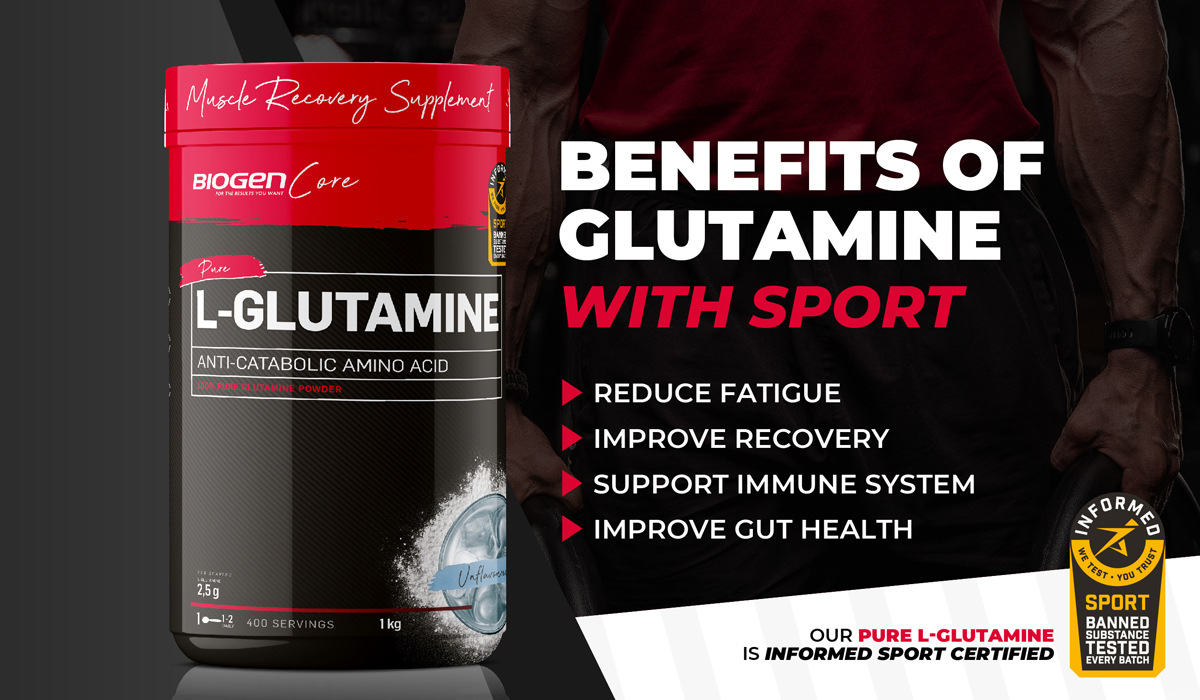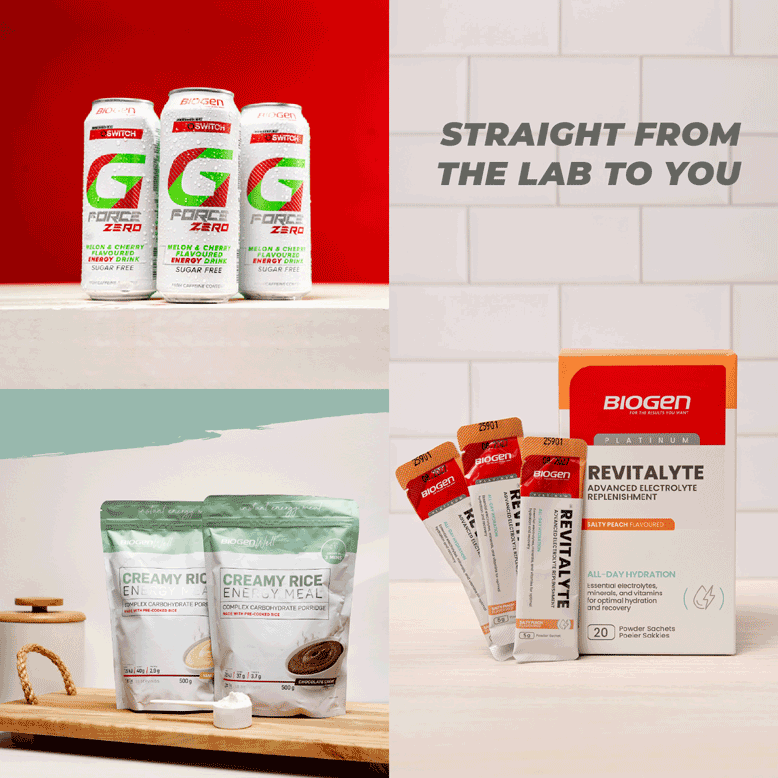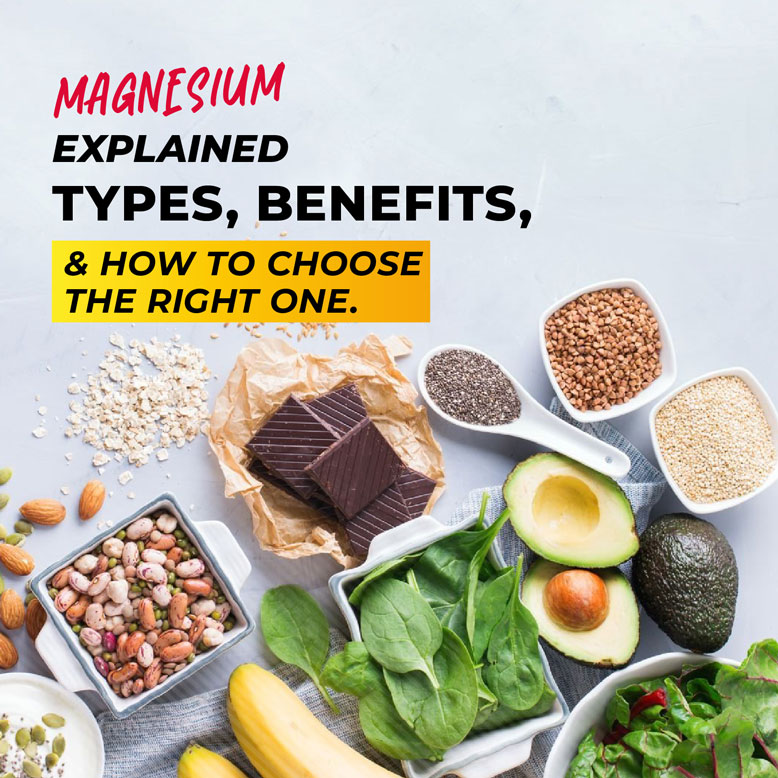
The average person doesn’t need to give too much thought to their glutamine requirements because the body can synthesize enough of this amino acid to meet its needs.
However, athletes and individuals who train hard in the gym day in and day out are anything but average.
When we place our bodies under intense physical stress, glutamine becomes a conditionally essential amino acid as the increased demand can exceed the body’s ability to produce enough.
In these situations, getting more glutamine from your diet and supplements can help meet your body’s heightened needs.
Additional conditions that can increase our glutamine needs include:
- Severe illness
- Injury
- Surgery
- Burns
Natural glutamine production
Glutamine is the most abundant amino acid in the body, including muscle tissue – it can account for as much as 60% of the free amino acids in skeletal muscle¹.
The body produces glutamine in muscle cells via a biochemical process involving an enzyme and specific building blocks.
Glutamine synthetase is the enzyme responsible for glutamine synthesis in muscle cells. This enzyme takes combined glutamate and ammonia and assembles them into glutamine in a reaction that requires energy, which comes from adenosine triphosphate (ATP).
Muscle tissue is a major site for glutamine synthesis because it houses a large pool of free glutamate. Additionally, muscles generate ammonia when breaking down amino acids. This abundant supply of raw materials makes muscle cells well-suited for glutamine production.
Boost supply with a supplement
With the need to supply additional glutamine during periods of higher demand following intense or hard training or illness, supplementing with glutamine may help prevent declining levels in muscle tissue and the gut to support your performance and your health.
Supplementing with L-glutamine after exercise might also help reduce muscle breakdown and promote faster recovery, especially among physically active individuals who engage in high-volume or intense training.
And L-glutamine supplements can play a valuable role in promoting a well-functioning immune response and support gut health and function to prevent illness and aid digestion.
Dosing guidelines
Take 2-5g (1 teaspoon) of a product like Biogen Pure L-Glutamine Powder, 1-3 times a day, or according to dosing instructions.
Beneficial times to supplement with glutamine to support recovery include before and after training, and before bed. Taking glutamine on an empty stomach first thing in the morning may support gut health.
References:
- Institute of Medicine (US) Committee on Military Nutrition Research. Military Strategies for Sustainment of Nutrition and Immune Function in the Field. Washington (DC): National Academies Press (US); 1999. 11, Glutamine. Available from: https://www.ncbi.nlm.nih.gov/books/NBK230973/
- la Torre ME, Monda A, Messina A, de Stefano MI, Monda V, Moscatelli F, Tafuri F, Saraiello E, Latino F, Monda M, et al. The Potential Role of Nutrition in Overtraining Syndrome: A Narrative Review. Nutrients. 2023; 15(23):4916. https://doi.org/10.3390/nu15234916.
- Cruzat V, Macedo Rogero M, Noel Keane K, Curi R, Newsholme P. Glutamine: Metabolism and Immune Function, Supplementation and Clinical Translation. Nutrients. 2018 Oct 23;10(11):1564. doi: 10.3390/nu10111564. PMID: 30360490; PMCID: PMC6266414
- Kim MH, Kim H. The Roles of Glutamine in the Intestine and Its Implication in Intestinal Diseases. Int J Mol Sci. 2017 May 12;18(5):1051. doi: 10.3390/ijms18051051. PMID: 28498331; PMCID: PMC5454963.
- Zhou Q, Verne ML, Fields JZ, Lefante JJ, Basra S, Salameh H, Verne GN. Randomised placebo-controlled trial of dietary glutamine supplements for postinfectious irritable bowel syndrome. Gut. 2019 Jun;68(6):996-1002. doi: 10.1136/gutjnl-2017-315136. Epub 2018 Aug 14. PMID: 30108163; PMCID: PMC9549483.










